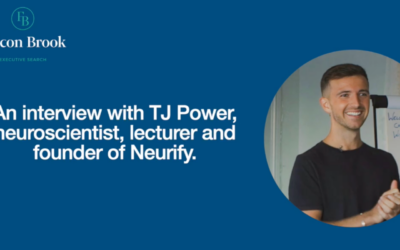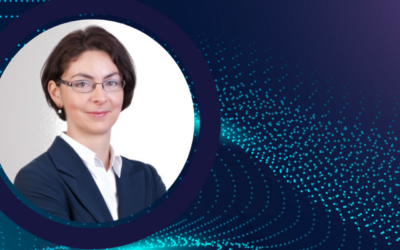With a career that has tracked the energy transition since its inception, in 2020 Sophie Ducoloner was appointed by Axpo Group, Switzerland’s largest producer of renewable energy, to grow its new hub in Singapore.
She now leads a team focused on growing the LNG trading portfolio and expanding into other commodities.
We caught up with Sophie to discuss the joys and challenges of leading a start-up, especially at the height of pandemic restrictions.
FBS: How did the move to become Axpo’s MD come about?
Sophie Ducoloner: Axpo was looking for someone to build the Singapore operations who had the breadth of experience to create a strong LNG trading base, strong knowledge in Asian markets and then to look beyond.
FBS: You took up the role of MD to build Axpo’s newest business hub in Singapore in December 2020. What was it like taking on this challenge in the middle of the pandemic?
Sophie Ducoloner: It was all online and turned out to be very efficient. There was no question of travelling to Switzerland for interviews because the meeting and travel rules in Singapore were very tight. I met my first manager in person for the first time in November, almost a year after taking up my position, and I’ve yet to visit Switzerland. We then recruited almost the entire Singapore team virtually and we continue to work on a hybrid model. It’s now business as usual.
FBS: Has this affected how the new Singapore hub has become a part of the wider Axpo business and developed its own team culture?
Sophic Ducoloner: The Axpo business model is very effective at supporting the new virtual and connected work style. There is a strong balance between integrating systems and processes centrally and also empowering decentralised teams with localised decision making. Both are essential in today’s fast-moving commodities markets. There is complete visibility between what is happening in Europe and in Asia. It means we can be very agile because the trading team can leverage global knowledge to back a move. We also have the freedom to work with clients to develop projects quickly. The result is we are already running a portfolio out of Singapore.
FBS: To what extent do you think this cultural agility is characteristic of renewable energy specialists like Axpo?
Sophie Ducoloner: Businesses like AXPO are asset light and well diversified and can evolve faster towards the energy transition without fundamentally re-engineering the balance sheet and without needing a large upfront investment in news skills. Axpo is at the top of the energy transition, it’s very entrepreneurial and very origination focused. There is also strong LNG track record which we are leveraging in Asia. It’s a winning strategy and creates a cultural mindset which means we can be effective in both renewables and other energy sources.
FBS: Tell us about your background and how you came to work in the energy sector.
Sophie Ducoloner: I was interested in politics, and I had wanted to become a diplomat which is where I was headed when I ended up finding opportunities in the energy sector. Energy was already undergoing a fascinating transformation which also linked to my interest in international relations. Environmental awareness was growing and the need to explore low carbon energy sources. Working in energy there is the same international dynamic. We’re dealing with topics with a strong political, economic, and regulatory dimension as well as the question of human impact.
FBS: When did you start to focus on renewables?
Sophie Ducoloner: It’s been a very sequential process. Back in 2001 I worked on a few projects around the shift to renewables in the Baltic when Eastern Europe was transitioning from communism and integrating into the EU. Even then, questions around the security of gas supply were putting pressure on companies to explore other avenues. I began working on biomass and renewable conversion projects prompted by the beginning of the implementation of the Kyoto protocol. Even then we were already exploring carbon trading as a viable option to kick start more sustainable production.
FBS: What was it like to lead the charge into the carbon sector?
Sophic Ducoloner: Looking back, I suppose I was one of the early pioneers that developed carbon trading. I became very passionate about the topic and pushed to become the person responsible for its commercial development because I could see the potential. We built carbon trading teams working as part of our gas teams. Then in 2008 I moved to London with Gazprom and my career changed again. It was a very different environment working as a trader in a Russian company in London. It was a totally unique risk assessment culture. Then Gazprom created the opportunity for me to work in Singapore. We were the first subsidiary in Asia to develop carbon activity and I moved to build the business.
That’s when carbon markets were still not being supported by politics, consumers or the private sector, so the focus was shifted to LNG activity. I had been a carbon specialist, and suddenly I was running an LNG team in Singapore. It was quite a learning curve.
FBS: How do you see energy markets evolving?
Sophie Ducoloner: There will be a total shift from procured to renewable energy – that is a given. But there are many questions and not just about the cost of renewables because now we are getting economies of scale in many markets. How do you manage the storage of electricity at scale? Then there are core fossil fuel consuming sectors – plastics, chemicals, jet fuels – how do these industries transition?
The quick win is investment in renewable and storage technology, as these bring the potential to change how the energy market is working. Then it releases the potential to invest in R&D to unlock the promise of say hydrogen, which is not a new product but may become a sustainable large-scale solution.
FBS: What has been your experience as the team or business lead working in often very male-dominated sectors?
Sophie Ducoloner: I have never felt harassed or segregated – and I think I am quite lucky. I have worked with very good managers who never differentiated based on gender. Now I am much more aware – not so much for myself but for others. How to engage diverse people within the business has become a topic and it can be an issue. I think it’s important for women to get educated and then to make themselves heard, and that’s where I can encourage them.
Front office commodity teams can be challenging for more diverse employees. Commodities like LNG are global and bring together counterparties from across the whole world of all races and genders. Businesses need to develop cultures where there is total respect for perspectives from other countries and backgrounds.



